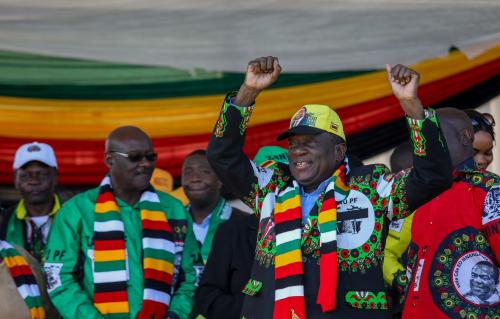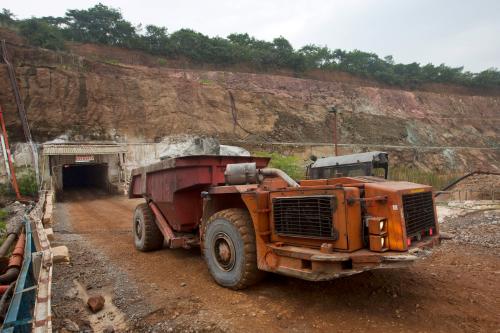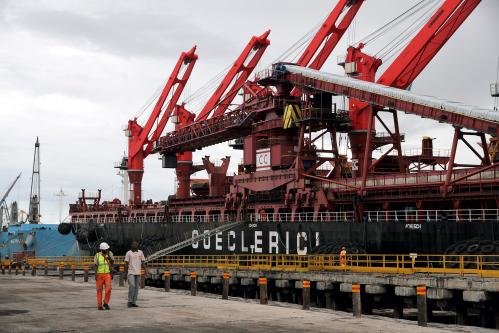The Zambian kwacha drops as President Lungu seeks medical attention
Zambian President Edgar Lungu flew to South Africa this week to seek specialized treatment for a medical condition after he collapsed on Sunday, March 8 at an International Women’s Day celebration in Lusaka. Lungu has been president for the past two months following a closely contested election in January 2015, prompted by the passing of late President Michael Sata in October 2014. Zambians are concerned by Lungu’s recent health scare, especially considering that two Zambian presidents in recent years (Sata in 2014 and Levy Mwanawasa in 2008) have died in office.
According to Bloomberg, Zambia’s currency, the kwacha, fell by one percent after Lungu’s collapse, down to 7.3350 kwacha per dollar. This decline has compounded on the currency’s already marked 13 percent decline against the dollar since January, caused in part by falling copper prices (Zambia’s main export) and the strengthening of the dollar in the world market. A dispute over domestic mining taxation laws between the government and international mining firms has also contributed to the drop in market confidence in Zambia’s economy.
For more information on health issues of Zambian and other African leaders, please see AGI Senior Fellow Mwangi Kimenyi’s piece on Africa in Focus: The Death of President Michael Sata and Issues of the Health of African Leaders.
South African power firm Eskom fires top executives amid outages
The board of South Africa’s state power firm Eskom Holdings, Ltd. suspended four of its senior executives, including Chief Executive Officer Tshediso Matona, on Thursday, March 12. According to the chairman of the board, the leaders’ suspension will enable the firm to carry out a three-month inquiry into the utility’s business practices in order to understand the causes of its poor performance.
South Africa has experienced nearly continuous rolling blackouts throughout February, as nearly one-third of its power generation (14,000 megawatts), on average, is estimated to be incapacitated, due in large part to power plant breakdowns. This situation has seriously impaired the country’s growth, which was already expected to reach only around two percent this year, according to the Finance Minister Nhlanhla Nene. The government has stated its support for the board’s inquiry and will still proceed with its plans to spend 23 billion rand ($1.8 billion) to bailout the firm, with the first payment of 10 billion rand ($816 million) to be issued on schedule in June.
United Nations delays sanctions though South Sudan peace negotiations fail
Another round of negotiations between South Sudan’s warring factions—government forces led by President Salva Kiir and rebel groups led by Riek Machar—ended last week without a final peace deal. Intergovernmental Authority on Development (IGAD) mediators had given the two sides until Thursday, March 5 to reach an agreement, and the deadline was extended through Friday, March 6 in hopes of a breakthrough, but the parties failed to reach a compromise over a power sharing arrangement. The next round of talks is scheduled for April 2015, and is expected to involve a new model called “IGAD-plus,” which will include representation from new international and regional partners, including the European Union, South Africa, and Tanzania.
On Thursday, March 12, the United Nations Security Council and the African Union met to discuss the South Sudan’s ongoing conflict and the failed peace talks. Following the meeting, they issued a statement that the warring parties would be given more time to reach an agreement before a U.N. sanctions regime, agreed upon last week, would be imposed. While no new timeline for the implementation of the U.N. sanctions was given, it is clear that they will target the leaders of the warring parties with asset freezes and travel bans.






Commentary
Africa in the news: Zambia’s kwacha collapses as president falls ill, South Africa power crisis continues, and South Sudan peace talks fail
March 13, 2015